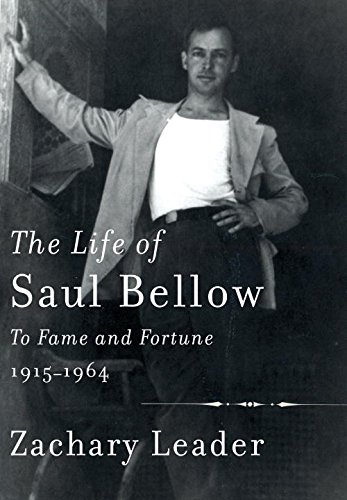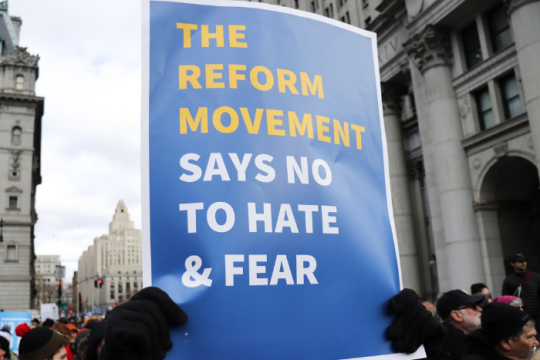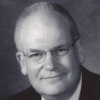
To mark the 100th anniversary of the birth of Nobel Prize-winning author Saul Bellow (1915-2005), Zachary Leader, professor of English Literature at the University of Roehampton, has published the first of a two-volume definitive biography.
The Life of Saul Bellow: To Fame and Fortune, 1915-1964 (Jonathan Cape/Vintage) covers the years from Bellow’s birth to Russian Jewish immigrant parents in Lachine, Quebec, to his publication of Herzog, about the midlife crisis of a Jewish man named Moses E. Herzog.
To a greater extent than any previous Bellow biographer, Leader meticulously shows how Bellow’s life and fiction were inextricably intertwined. Names and locations may change, but his novels, including Herzog, The Adventures of Augie March, and Humbolt’s Gift, are all drawn from the Jewish writer’s life experiences. “Facts are just facts,” Bellow once observed, “until they are electrified by the current of imagination, at which point the magic happens.”
When Herzog was published, the poet John Berryman sent his friend Bellow a note saying, “Nobody has ever sat down and wallowed to this extent in his own life, with full art.” Berryman was acknowledging Bellow as the first American novelist to interject his own grievances and humiliations, the muck of his life, and make of it art. The muck is there for all to see: heartbreak, one divorce after another, petty jealousies, academic disputes, betrayals, rivalries, and the continual grumpiness of a man who had a very high opinion of himself. In later years, Bellow became well known and sometimes notorious for his fictional representation of real people.
One gets an inkling of Bellow’s propensity for intellectual dueling in his response to a snipe from the great scholar of Jewish mysticism, Gershom Scholem:
I am told that a statement that I was said to have made in 1976 when I won the Nobel Prize put him in a rage. I was quoted in the papers as saying that I was an American writer and a Jew. Perhaps I should have said that I was a Jew and an American writer. Because Scholem is one of the greatest scholars of the century, I’m sorry I offended him, but having made this bow in his direction, I allow myself to add that the question reminds me of the one small children used to be asked by clumsy Sunday visitors in olden times: “Whom do you love better, your Papa or your Momma?” I recognized that I answered the reporters unthinkingly, “writer first, Jew second.”
Though Bellow was not a practicing Jew, he described his Jewish “consciousness,” a product of growing up speaking to his immigrant parents in Yiddish, as “my given and it would be idle to quarrel with it, or try to revise or efface it.”
In his mid-20s, Bellow came to New York City for the first time and was introduced to the author and critic Alfred Kazin, who described Bellow as “an unembarrassed Yiddishist.” He also said of him, “He seemed at ease with his Jewishness – Jewishness seemed the source of his ease."
Zachary Leader attributes Bellow’s genius to his ability to closely observe the world in which he found himself and fictionalize what he saw. As his family and many of his friends and colleagues were Jewish, it follows that many of Bellow’s fictional characters were likewise Jewish.
Bellow’s final novel, Ravelstein (2000), is a thinly veiled portrait of the author’s friend, the philosopher Allan Bloom. As the novel ends, Abe Ravelstein is dying of AIDS. His friends come to his hospital room to say their goodbyes, and Bloom says something that could sum up Bellow’s own life: “I had a Jewish life to lead in the American language.” Zachary Leader amply (at 800-plus pages) fills in the details of Bellow’s first 51 years in the first volume of his masterful portrait of Bellow’s tumultuous life and interrelated literary legacy.
Related Posts

Dying and Living with Dementia

The Union for Reform Judaism’s Responses to the Increase in Antisemitic Incidents

